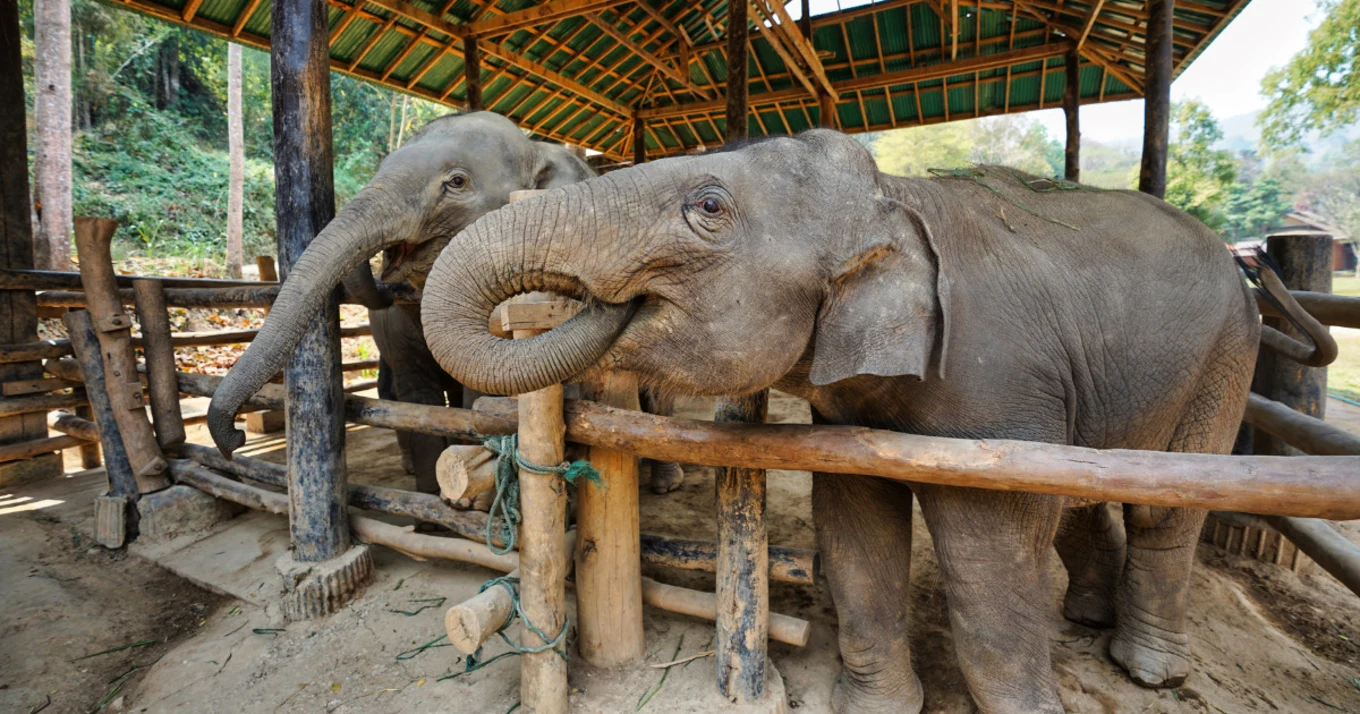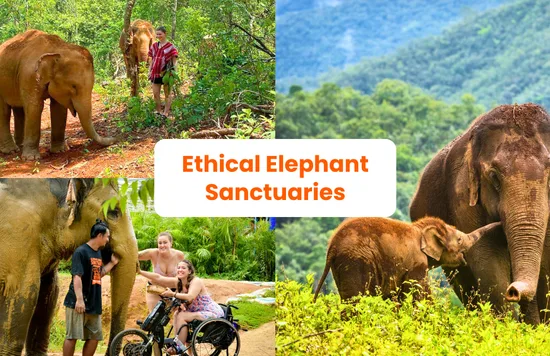Booking an Elephant Experience? Here’s How Klook Ensures It’s Ethical
Elephant tourism, with a long history rooted in Southeast Asian culture, supports the livelihoods of many local communities—particularly in places like Chiang Mai—where elephants have been cared for over centuries.
These sanctuaries also provide jobs for local staff and source food from nearby farmers, further benefiting the community.
However, the rise in tourism has raised concerns about the welfare of captive elephants and their caretakers (known as mahouts), with an abundance of information online making it difficult for visitors to decipher the welfare practices of the elephant experiences they want to book.
Klook has a responsibility to sell high welfare elephant experiences on our platform, and we want to make it easier for our customers to feel confident that they are contributing positively to elephant welfare and local communities when they make a booking.
Klook’s Elephant Camp Assessment is a one-day onsite assessment, covering 10 key areas of camp management, and is valid for one year. It’s conducted by independent auditors who specialise in captive elephant welfare, who go behind the scenes to really understand how camps are run and how the elephants are treated.
Passing camps earn a 'Klook Assessed' badge, signaling to customers that their visit supports responsible elephant experiences and community welfare.
We want this comprehensive assessment to be fully transparent, so if you want to get into the nitty gritty of elephant camp assessments, read on!
10 Key Areas of Camp Management
1. Legal Requirements
Facilities must comply with legal standards. This includes licenses, permits, and regulations that protect both animals and staff.
Comprehensive documentation for all elephants, including health records, ownership, and permits, is required. Every elephant must be officially identified to track and monitor its welfare.
2. Facility Management
Facilities must demonstrate the capacity to maintain standards of care and transparency. All staff should have formal contracts with benefits, insurance, and security measures in place.
Mahouts (elephant caretakers) must have safe, sanitary living quarters and fair working conditions. Facilities are required to maintain employee records, provide fair wages, offer training programs, and grant sick leave and holiday entitlements.
3. Elephant Management
Standards for elephant management emphasize ethical approaches. This includes positive reinforcement training techniques, minimal use of restraint, and the avoidance of harmful tools.
Facilities are required to respect elephants’ natural behaviors, maintain calm environments, and prioritize gentle practices.
Chain use must be minimal with humane lengths allowing reasonable movement and limit time spent in restraint. Daily enrichment activities are mandatory to keep elephants mentally stimulated.
Elephants must also have a secure, comfortable, and spacious night area necessary to promote movement, social interactions, and natural behaviors.
4. Elephant Welfare
For elephants’ overall health and happiness, they must have access to clean water, appropriate diets, large living spaces, shade, and environments that mimic their natural habitat as closely as possible.
Social interactions and freedom to roam are also important players to ensuring welfare. Proper care for young elephants and specific measures for elephants in musth (a hormonal state) are required.
Access to medical care is essential, with routine medical check-ups, emergency support, and health monitoring. Facilities must also meet the special needs of elderly elephants.
5. Elephant Activities
Activities must align with the welfare of elephants. Forced performances and unnatural behaviors are prohibited.
Activities should focus on natural behaviors, where elephants can walk, bathe, or be observed without interference, allowing elephants to engage in socializing, foraging, and playing rather than performing for visitors.
6. Visitor Safety
Facilities must implement safety protocols for both visitors and staff to minimize risk during interaction with elephants.
This includes safe viewing areas, proper barriers, and trained guides to manage interactions to prevent accidents or stress to elephants. First aid, liability insurance, clean facilities, safety equipment, and visitor amenities must be provided to ensure a secure environment.
7. Visitor Experience
Rather than focusing on entertainment, facilities are encouraged to provide insights into elephant biology, behavior, and conservation, offering visitors a meaningful and informative experience while fostering respect and appreciation for elephants.
8. Overall Camp Quality
Facilities must be well-maintained, with hygiene standards that ensure the well-being of animals, visitors, and staff alike.
Camps must have sustainable energy and water usage practices. Proper disposal and recycling processes should also be in place to reduce environmental impact.
9. Community Relations
Facilities should contribute positively to the local community, fostering employment opportunities and education. This includes ethical hiring practices and community outreach programs.
Facilities are encouraged to source supplies from local providers to support the surrounding economy.
Klook’s Commitment to Responsible Elephant Tourism
The Klook Assessment criteria for elephant sanctuaries encompasses a holistic approach, ensuring that facilities adhere to legal standards, maintain effective practices, prioritize elephant welfare, ethical management, and create safe and educational experiences for visitors.
For further information on the background of elephant experiences in Asia, check out this article linked below!
What is Klook?
Klook is Asia’s leading platform for experiences and travel services. We curate quality experiences ranging from attractions and tours to local transport and experiential stays, in over 2,700 destinations globally.
Browse our growing collection of travel activities and services in 15 languages, and complete bookings seamlessly with 40 currencies and over 40 payment methods.
Founded in 2014, we are here to inspire and enable more moments of joy for travelers anytime, anywhere. Whether it's something new in your neighborhood or an adventure abroad, with Klook you're always connected to a world of things to do and places to see.






![[Central] Klook Assessed Elephant Sanctuaries: Elephant Welfare](https://res.klook.com/image/upload/fl_lossy.progressive,q_85/c_fill,w_1000/v1740538949/zlenodkeapt71rln5b8i.webp)
























